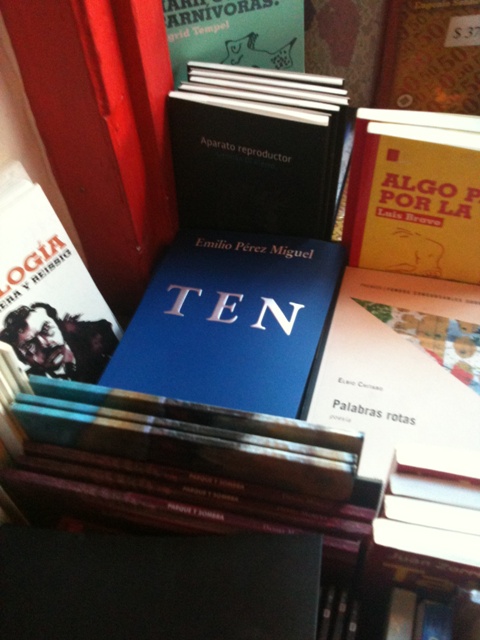(Hagan click aquí para leer este artículo en español)
This is the dissertation Uruguayan poet Javier Etchemendi delighted us with when “Ten” was officially released (Friday 19th of November, 2010).

Numbers Also Go To Heaven
A closed universe vibrates in the writing of Emilio Pérez. A place that we can only stare at from the sidelines, knowing that there is an important part of him that will always remain out of reach.
The reader might ask himself, what good is a universe like that for? And that would be tantamount to asking what good is mystery for. The answer is obvious: for losing yourself in it, and coming out modified and strange, knowing something did happen and that such a something attracts us like danger and love do, in an unconscious way.
A mystery is not there to be elucidated. By its mere nature, a mystery is no longer a mystery when we fathom it out, when it becomes a certainty within a safe place. If the veil separating what we know from what we want to know becomes broken, then the mystery itself is broken for good.
A book is a door. I know that very well, for I am a guarder of the gates to the other world. And every once in a while, I let words pass from one side to the other. And since I know about words, I can honestly tell you that in “Ten” the author matters very little. Rather, it begins to matter very little once the door has been opened. Some might say, “But it is a book written in English”. And I can reply: do kisses, tears, desperation and redemption have a language? Emilio sets down his titles like glowing stones that we can follow to the other shore, where the golden pot can be found. “Nobody Feels All The Time”, “The Dark Side Of The Road”, “Broken”, “Cry”, “After The Fire The Fire”. Continue reading
